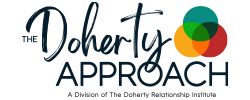Welcome to the world of attribution theory—a fascinating concept that holds significant implications for couples therapy. As co-founder of the Doherty Relationship Institute, Elizabeth Doherty Thomas sheds light on how attribution theory can be leveraged to enhance therapeutic outcomes within the framework of the Doherty approach.
Introduction: Unveiling Attribution Theory
Attribution theory, while rooted in research, delves into the human tendency to attribute experiences and emotions to external factors. It’s the process through which individuals make sense of their interactions and assign meaning to their partner’s behaviors. However, as experienced couples therapists know, these attributions are not always accurate and can hinder progress in therapy.
Understanding Attribution in Couple Dynamics
In the realm of couples therapy, attribution theory plays a pivotal role in understanding the dynamics between partners. Clients may attribute their partner’s actions to past experiences or preconceived notions, creating barriers to effective communication and resolution. The challenge lies in guiding couples to reevaluate their attributions and focus on the present interaction patterns.
The Doherty Approach: Focus on Present Interaction
While diagnostic frameworks like the DSM provide valuable insights, they often fall short in addressing the intricacies of couple dynamics. Attributing behaviors solely to past experiences overlooks the complexity of present-day interactions. Instead, the Doherty approach emphasizes the importance of focusing on observable behaviors and interactions in the here and now.
By honing in on couples’ interaction patterns, therapists can help unravel misconceptions and foster mutual understanding. Rather than dwelling on past attributions, therapy sessions become opportunities for couples to identify and address underlying issues in real-time. This approach encourages couples to take ownership of their interactions and collaborate towards constructive solutions.
In essence, attribution theory serves as a starting point for exploration in couples therapy, but it’s the understanding and modification of present interactions that lead to meaningful change. At the Doherty Relationship Institute, we prioritize practical interventions grounded in observation and common sense, empowering couples to break free from limiting attributions and cultivate healthier relationships.
Transformative Potential: Attribution Theory in Therapy
If you’re intrigued by the transformative potential of attribution theory in couples therapy, we invite you to explore the resources available at thedohertyapproach.com. Join us on a journey of discovery as we navigate the complexities of couple dynamics and pave the way for lasting change.
